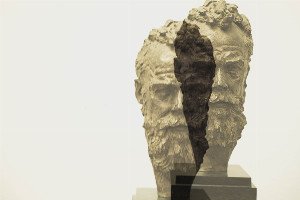Siti Risda Sakila, Khamim Zarkasih Putro, Hibana Hibana
Awakening Early Conscience: Islamic Values and Religious Moderation in Syeikh Abdurrahman Shiddiq’s Syair
Introduction
Awakening early conscience: islamic values and religious moderation in syeikh abdurrahman shiddiq’s syair. Explore Syeikh Abdurrahman Shiddiq's "Syair" for early Islamic education, promoting religious moderation, tolerance, and patriotism. An effective strategy for character development in children.
Abstract
This article explores "Syair Ibarat dan Khabar Kiamat" by Syeikh Abdurrahman Shiddiq as a valuable resource for Islamic education and the promotion of religious moderation among young children, deeply rooted in local wisdom. Employing a qualitative-hermeneutic approach, the study reveals that the syair conveys essential Islamic values, including the shahādah (testimony of faith), ṣalāh (prayer), ṣawm (fasting), zakāh (almsgiving), and ḥajj (pilgrimage). Furthermore, it advocates for values of moderation such as tolerance, patriotism, resistance to radicalism, and cultural adaptability. The analysis draws upon various theoretical frameworks, including al-Attas's concept of ta'dīb, Gardner's theory of multiple intelligences, Gadamer's philosophical hermeneutics, Nurcholish Madjid's inclusive Islam, Lickona's character education, and the value clarification technique (VCT). The findings indicate that the syair functions not only as a piece of religious poetry but also as a culturally embedded moral resource that shapes children’s spirituality. It harmonizes Islamic teachings with cultural traditions and fosters a sense of national identity. Consequently, this syair can serve as an effective pedagogical strategy for promoting contextual and moderate Islamic character education in early childhood settings.
Review
This article presents a timely and relevant exploration of Syeikh Abdurrahman Shiddiq’s "Syair Ibarat dan Khabar Kiamat," positioning it as a significant resource for Islamic education and the cultivation of religious moderation among young children. The authors employ a qualitative-hermeneutic approach to meticulously uncover the core Islamic values—such as *shahādah*, *ṣalāh*, *ṣawm*, *zakāh*, and *ḥajj*—embedded within the *syair*. Crucially, the study also identifies its advocacy for values of moderation, including tolerance, patriotism, resistance to radicalism, and cultural adaptability, all deeply rooted in local wisdom. The abstract indicates a robust theoretical foundation, drawing upon a diverse array of scholars and frameworks, which immediately suggests a well-considered and multi-faceted analysis. A key strength of this paper lies in its innovative focus on a classical *syair* as a pedagogical tool, thereby bridging traditional Islamic knowledge with contemporary educational needs. The interdisciplinary theoretical framework, encompassing al-Attas's concept of *ta'dīb*, Gardner's multiple intelligences, Gadamer's hermeneutics, Madjid's inclusive Islam, Lickona's character education, and the Value Clarification Technique, provides a comprehensive lens for analysis. This broad theoretical application not only enriches the interpretation of the *syair* but also underscores its potential for fostering a nuanced and moderate Islamic character. The findings highlight the *syair*'s dual function as both religious poetry and a culturally embedded moral resource, capable of harmonizing Islamic teachings with local traditions and nurturing national identity in early childhood. The article makes a substantial contribution to the discourse on Islamic education and character development, particularly in early childhood settings. Its emphasis on contextual and moderate Islamic values, presented through an accessible cultural medium like the *syair*, offers a promising pedagogical strategy in an era where countering extremism and promoting interfaith understanding are paramount. While the abstract strongly outlines the theoretical frameworks utilized, a detailed discussion within the full paper on *how* these diverse theories specifically illuminate the *syair*'s pedagogical mechanisms would be particularly insightful. Overall, this research provides a compelling argument for the enduring relevance of traditional texts in shaping modern educational approaches and is highly recommended for its originality, scholarly rigor, and practical implications.
Full Text
You need to be logged in to view the full text and Download file of this article - Awakening Early Conscience: Islamic Values and Religious Moderation in Syeikh Abdurrahman Shiddiq’s Syair from Madania: Jurnal Ilmu-Ilmu Keislaman .
Login to View Full Text And DownloadComments
You need to be logged in to post a comment.
Top Blogs by Rating
Beyond Impatience: A Philosoph...
By Sciaria
The Collective Gasp: Why Live...
By Sciaria
Beyond the Blueprint: Why Your...
By Sciaria
Favorite Blog
The Spiritual Shelf Life: Navi...
By Sciaria
Beyond Impatience: A Philosoph...
By Sciaria
The Unspoken Wisdom: Embracing...
By Sciaria
Related Research
Fostering innovative work behavior in new product development projects: a theoretical review
On the public health crisis
Porque, segundo eliot, camões não é um clássico
Share
Notice Board
- LITERASI DIGITAL UNTUK MENENTUKAN STRATEGI PEMASARAN PADA PELAKU UMKM DI KECAMATAN MRANGGEN KABUPATEN DEMAK
- HIGH-RESOLUTION SMART CARD-BASED OD MATRIX FOR OPTIMIZING JAKARTA’S LRT OPERATIONS
- ANALISIS PROFIL PELAJAR RAHMATAN LIL ‘ALAMIN DALAM BUKU TUNJUK AJAR MELAYU KARYA TENAS EFFENDY DAN RELEVANSINYA DENGAN PENDIDIKAN AGAMA ISLAM




